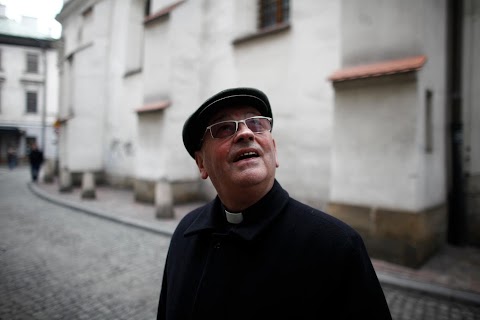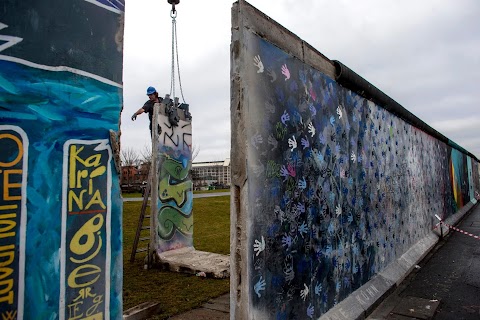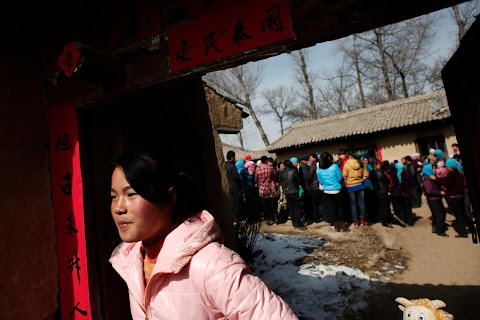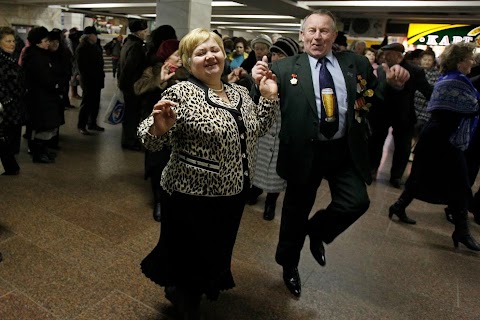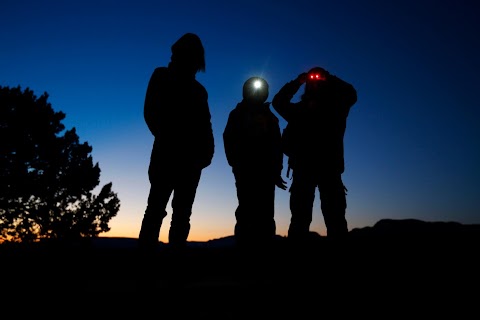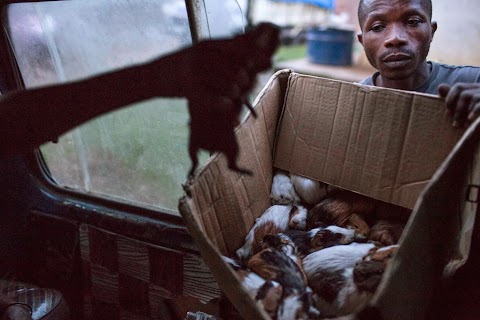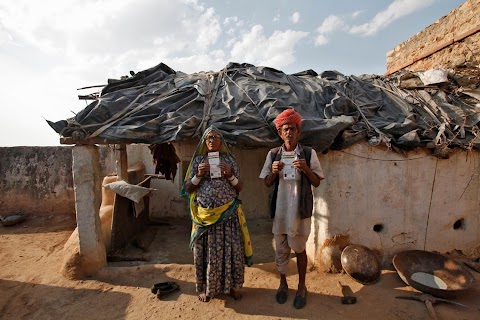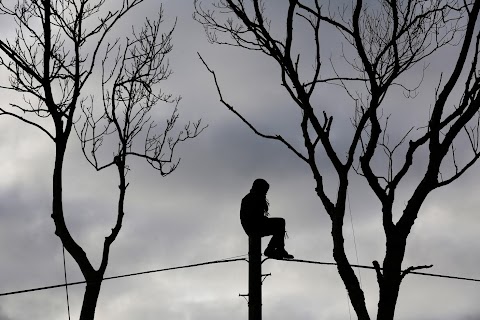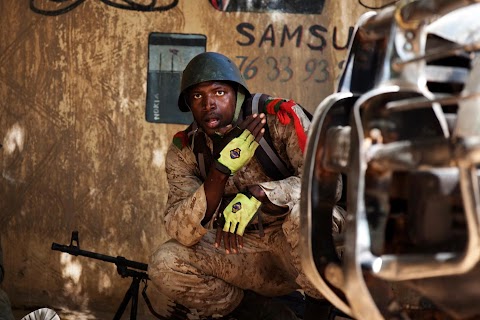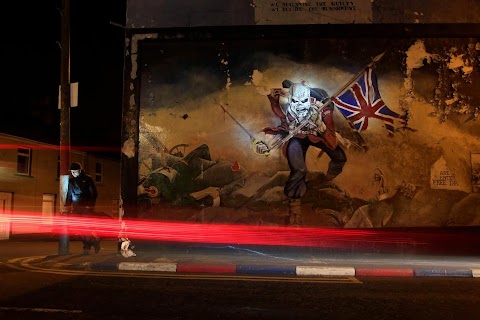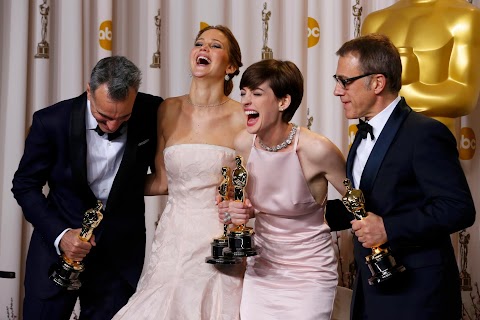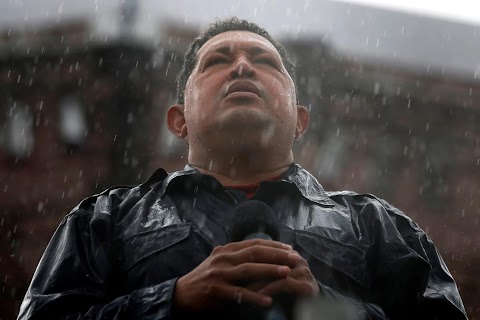
End of an era
 Jorge Silva
Jorge Silva
Venezuelan President Hugo Chavez died on Mar. 5 after a two-year battle with cancer.
His passing ended 14 years of tumultuous rule that made the socialist leader a hero for the poor but a hate figure to his opponents.

Chavez hugs his daughters Rosa and Maria on the balcony of the presidential palace in Caracas while appearing before his followers in 2011. He was adored by supporters for his charismatic style, anti-U.S. rhetoric and oil-financed policies that brought subsidised food and free health clinics to long-neglected slums.

The Venezuelan leader was partly inspired by his friend and mentor Cuban President Fidel Castro to take his country down an increasingly radical path. He nationalised much of the economy and ran the government with a micro-managing - and many said autocratic - style.
Opponents accused Chavez of repressing critics, squandering record oil revenues and scaring away investors by seizing assets ranging from shops and farms to multibillion-dollar refinery projects run by foreign energy companies.

Chavez hands U.S. President Barack Obama a copy of a book by left-wing Uruguayan writer Eduardo Galeano, describing centuries of exploitation in Latin America. The Venezuelan President had an antagonistic relationship with the United States and cultivated much of his support by confronting the country, which he denounced as a decadent, war-mongering empire.

In parallel to his strained relationship with the United States, which Chavez accused of backing a coup against him in 2002, the Venezuelan leader forged closer ties to anti-Western states such as Belarus, Iran and Syria. Here he is pictured welcoming Iranian President Mahmoud Ahmadinejad at Miraflores Palace in Caracas.

Chavez was a flamboyant personality who was not above taking part in friendly softball games or singing in public. His folksy charisma evoked almost religious passion among poor supporters who loved his common touch and determination to put the nation's oil wealth at their service.

In mid-2011 the Venezuelan president announced that he was being treated for cancer. He underwent four operations in Cuba, as well as gruelling chemotherapy and radiation treatment. He wrongly declared himself cured twice.

Chavez supporters reacted with outpourings of grief after he lost his fight against the disease. His death was announced by Vice President Nicolas Maduro, whose voice choked as he said in a televised address: “We have just received the most tragic and awful information. At 4.25 p.m. today March the 5th, President Hugo Chavez Frias died."
Slideshow

Chavez's coffin is driven through the streets of Caracas after leaving the military hospital where he died of cancer.

The Venezuelan leader arrives at a news conference after winning re-election in October 2012 with 55 percent of the vote. He was too ill to be sworn in for his new six-year term, but Venezuela's Supreme Court ruled that he remained president, even in hospital.

Chavez throws his microphone after speaking during his closing campaign rally for the October 2012 election.

The famously charismatic president closes his eyes as he breaks into song next to Mexican singer Vicente Fernandez at a meeting in Miraflores Palace.

He sings at a campaign rally with Socialist party youth in Caracas.

Chavez leans back and croons into a microphone during an election rally.

He holds up the pistols of Latin American independence hero Simon Bolivar during a ceremony to mark his birthday.

He peeks from the balcony at Miraflores Palace after flying home from Cuba following a round of cancer surgery.

Chavez greets supporters on his way to the airport before departing to Cuba for surgery.

He chats with Argentine President Cristina Fernandez and Brazilian President Dilma Rousseff while posing for a photo at a summit for the Community of Latin American and Caribbean States.

He grins and waves as he arrives at a military parade to commemorate the 200th anniversary of Venezuela's independence.

Chavez arrives in Cancun to attend a Rio Group summit meeting.

He sings during a ceremony to sign an agreement with Iran's President Mahmoud Ahmadinejad at the Miraflores Palace.

The Venezuelan leader attends a ceremony to mark the nation's aviation day.

He drives away in a red Volkswagen Beetle after voting in the 2006 presidential election.

Chavez and his Cuban counterpart Fidel Castro joke after joining medallions, handed out by medical graduates, at the Karl Marx theatre in Havana.

Chavez wears army uniform, including his trademark red beret, on the third anniversary of his return to power after a coup against him in 2002.

His supporters take over the streets and burn tires near the presidential palace during the short-lived 2002 coup.

Chavez jokes with Fidel Castro during a friendly baseball game between Venezuela and Cuba.

Chavez and his former wife Maria Isabel wave to supporters during his closing campaign ceremony in 2000.

Chavez stands in jail in 1992 after being arrested for an attempted coup against then-President Carlos Andres Perez. The putsch failed, but it did launch his political career.



